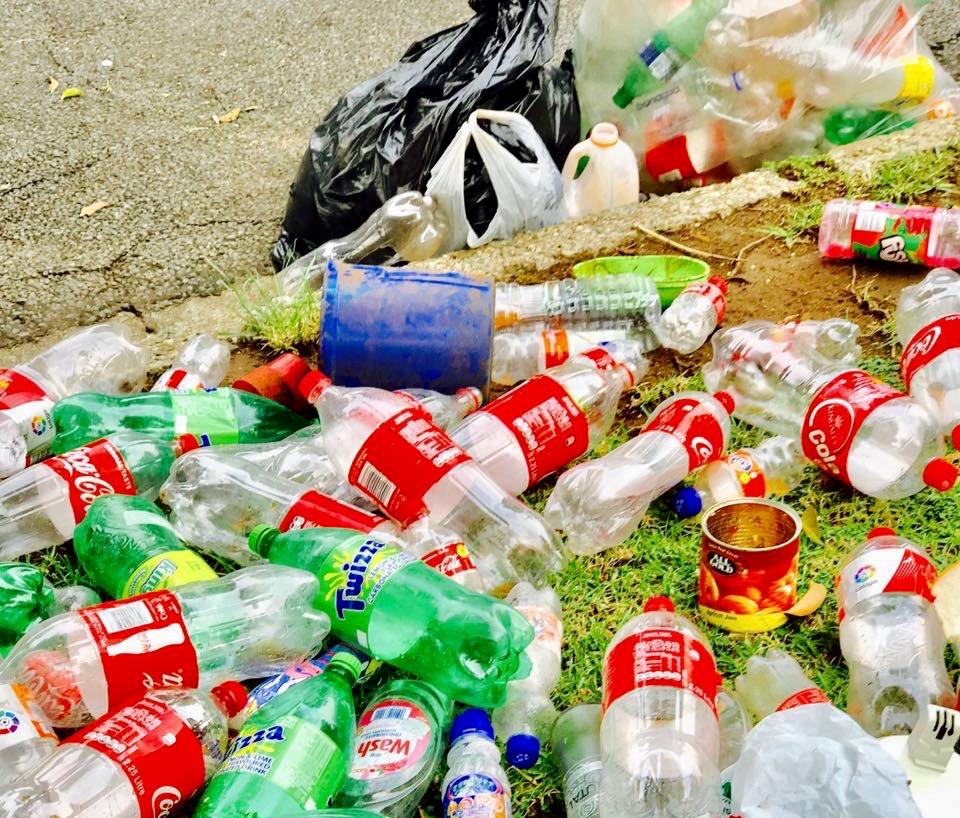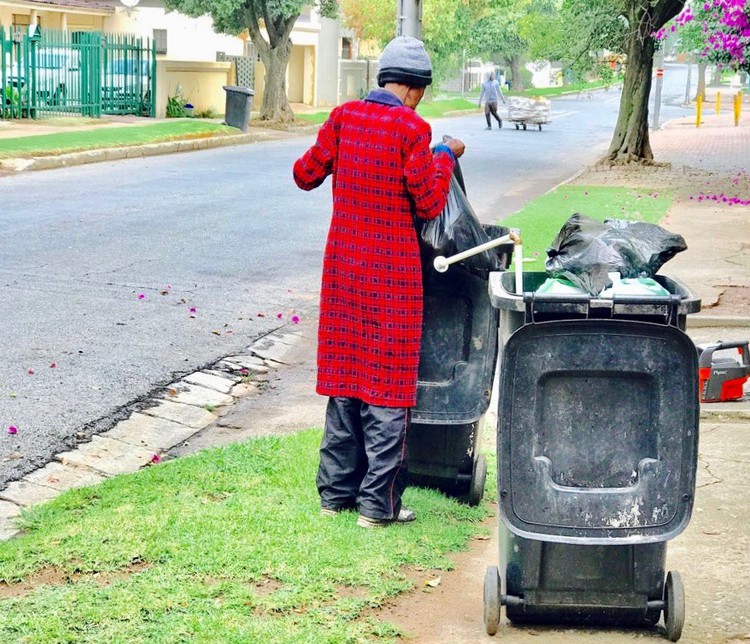“To people dustbins smell bad. To me they smell of money.”
Thembisile Kubheka makes a living by picking through bins
Thembisile Kubheka lives by collecting waste material for recycling from the suburban dustbins of Springs.
The 49-year-old, single mother of three children wakes up early in the morning to catch a taxi at 6am from her two-roomed house in Geluksdal, Brakpan, to get to Geduld.
By 7am she is rummaging through dustbins, collecting plastic containers, cardboard boxes, and empty cans.
“In the location [where she lives] there is no good stuff,” she says. “People do not buy as much as people living in town.”
And, says Kubheka, “People in our area laugh at you when you pick up things from the dustbins. They think you are suffering. Or that you are mad. Not that I care much; as long as I am able to put food on the table.”
“To people dustbins smell bad. To me they smell of money. It’s better to have little than nothing at all,” she says.
Kubheka has been doing this for ten years now. She tries to get to town as early as possible, before the other waste pickers and before the municipal garbage collectors. She says, lately, there have been fights over waste materials at the dump site in Brakpan, so she no longer goes there.
Kubheka suffers from high blood pressure and must lie down sometimes. At the time of the interview, she said she had sores in her mouth and a throat infection.
“Who knows? Maybe I got infected from one of the dustbins. But I can’t stop now. Where else can I get money? I just have to be careful next time and wear a protective mask to avoid getting infected. But I also need to have money to buy one,” she says.
She works with her bare hands and without any protective clothing.
Some residents of Geduld keep empty containers for her until she comes around. Some give her food, money and secondhand clothes for her children.
At the recycling company she gets R3.20 per kilogram for plastic containers and empty cans; R1.20 per kilogram for plastic, and R2 per kilogram for cardboard boxes. She makes around R40, on a good day, R60. Her daily taxi fares are R26.
“l need every cent,” she says.

Support independent journalism
Donate using Payfast

Don't miss out on the latest news
We respect your privacy, and promise we won't spam you.
© 2017 GroundUp. 
This article is licensed under a Creative Commons Attribution-NoDerivatives 4.0 International License.
You may republish this article, so long as you credit the authors and GroundUp, and do not change the text. Please include a link back to the original article.

